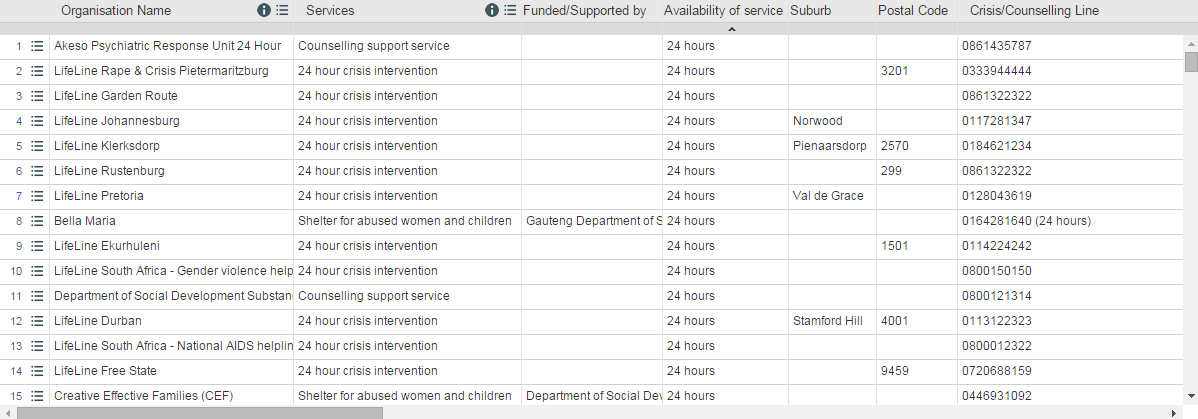I once heard South Africa described as a country with a legacy of disrespect for women. Without debating the validity of that, it is certainly true that we have a high incidence of abuse of women, and given poverty and education levels, how easy is it for South African women to find resources in a time of crisis?
This was the question we asked ourselves at Code for South Africa in the weeks leading up to Woman’s Day this year. We wondered if there existed a central repository of resources for women that was national, and that covered the broadest possible spectrum of resources that South African women could have access to. We discovered, unsurprisingly, that this was not the case, and decided to make a start at changing this.
As a self-confessed data nerd, I was thrilled at the opportunity to plunge my paws into the building of a new dataset that would, through the sourcing and collating of this information, provide a springboard for future development of a mobile platform which would make the data more easily accessible to South African women. A lot of data work is, simply that, work. One has to roll up the proverbial sleeves, and crunch away, and while this may seem tedious to all you non-nerds out there, it is something I thoroughly enjoy, and knowing that the result could potentially change the lives of South African women, made it doubly rewarding.
The data is available on the Code for South Africa’s open data portal and is searchable by location, and by the services offered by the various organisations. The data has been compiled nationally, and covers a range of services including counselling support, soup kitchens, shelters, support for drug and alcohol addiction, support for mothers with children, police services, LGBT community support and crisis lines.
In the spirit of open source data, we would like to crowdsource this project so please feel free to contact us if any of the details are incorrect, or to add any services or organisations that are additional to the existing data.





